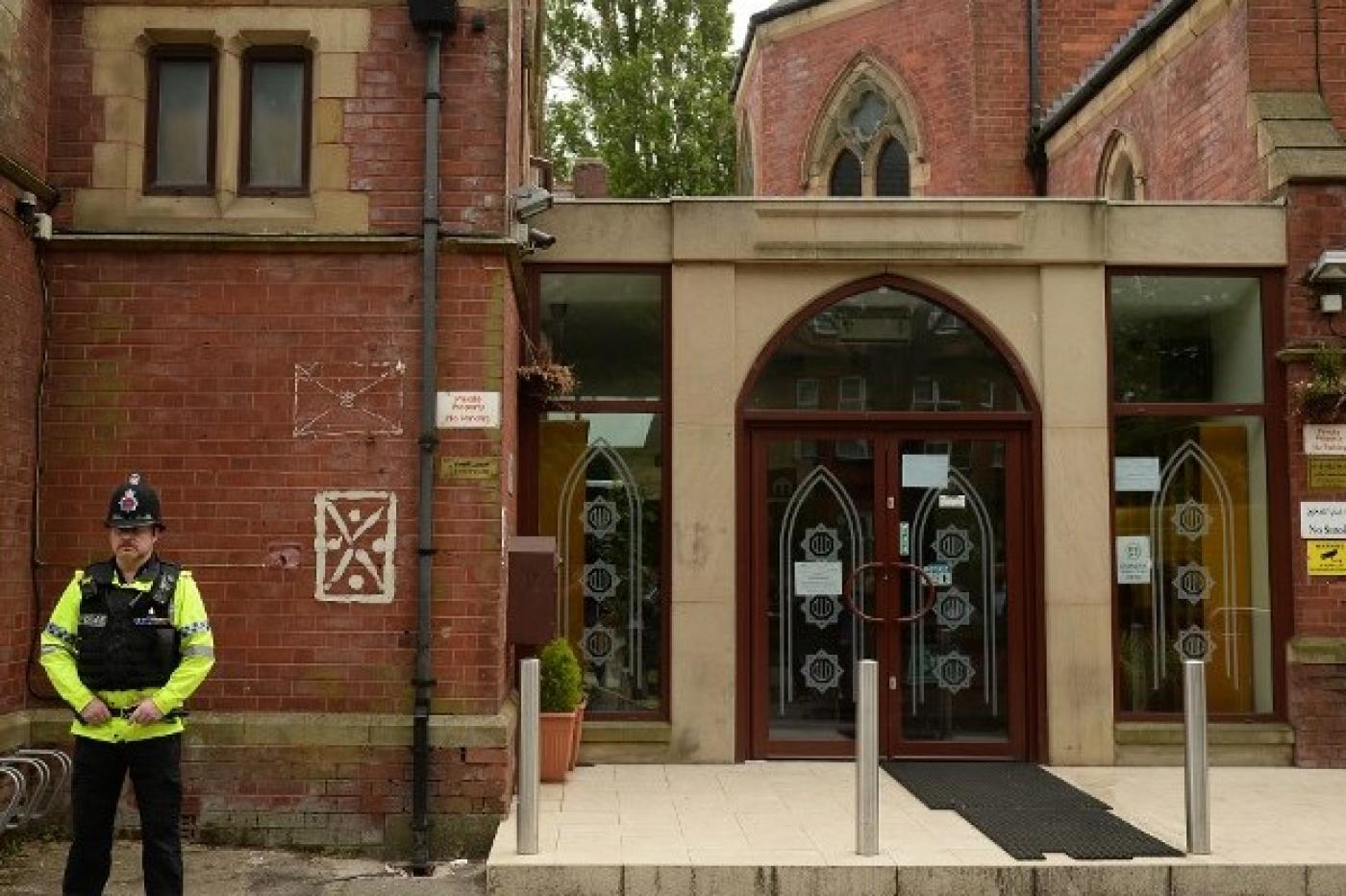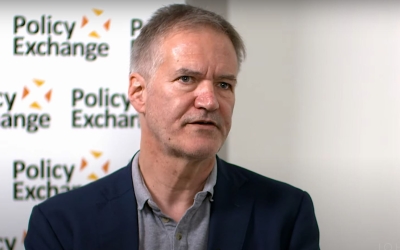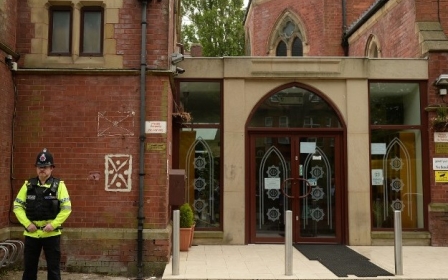Shawcross Prevent role is Tories' latest salvo in culture war against Muslims

The appointment of William Shawcross as reviewer of the UK government’s contentious Prevent counter-terrorism strategy should be seen as the latest example of the Conservative Party’s structural hostility to Islam.
Remember that two-thirds of Tory members polled in 2019 believed the conspiracy theory that “there are areas in Britain that operate under Sharia law”.
Remember that Tory leader Boris Johnson notoriously compared Muslim women wearing face veils to “letterboxes” and “bank robbers”.
Think of the way the major newspaper groups combined with Tory ministers to pillory Muslims in the so-called Trojan Horse affair, when school leaders in Birmingham were falsely accused of involvement in a fabricated Islamist plot to take over the city’s classrooms.
Disquieting examples
Tory hostility towards Muslims dates back before Johnson. Zac Goldsmith ran an Islamophobic campaign to be mayor of London in the spring of 2016, as I exposed in Middle East Eye.
As part of that noxious strategy, David Cameron disgracefully used Prime Minister's Questions to falsely label a South London imam a supporter of the Islamic State group.
A slanderous fabrication for which the British prime minister was forced to apologise.
Since then, there have been many disquieting examples of Conservative Party Islamophobia. Last November, Tory MP Michael Fabricant used the phrase "Anglo-Muslim relations" in a tweet, implying that Muslims are not fully English.
Johnson’s Conservative Party did not merely stand by Fabricant after his shocking remark. It praised him.
There’s a pattern. When Labour’s Naz Shah called for a debate on Islamophobia in the UK, Andrea Leadsom, then leader of the Commons, replied that Islamophobia was a matter for the Foreign Office.
Another example concerns the government’s appointment of Richard Sharp as BBC chairman. Sharp continues to ignore MEE’s questions about his support for the so-called counter-extremism organisation Quilliam - which spread the noxious, false and inflammatory claim that “84 percent of 'grooming gang' offenders are Asian”, the majority “of Pakistani origin with Muslim heritage”.
Senior Tories have publicly praised French President Emmanuel Macron’s targeting of French Muslims.
Shocking views
Shawcross, a journalist and author by profession, with biographies of Rupert Murdoch and the Queen Mother to his name, is an almost perfect manifestation of all the above. He was an enthusiastic supporter of the Iraq war, both before the 2003 invasion and in its bloody aftermath.
The son of Hartley Shawcross, the chief British prosecutor during the Nuremberg trials of Nazi war criminals after the Second World War, his 2012 book Justice and the Enemy defends the American use of interrogation techniques, including waterboarding, that are widely regarded as torture, as well as the detention of suspected al-Qaeda militants at Guantanamo Bay.
During his chairmanship of the Charity Commission from 2012 to 2018, the regulator faced complaints of institutional bias against Muslims, which both the commission and Shawcross denied.
In 2015, Shawcross said that “Islamist abuse of Muslim charities” was the “most potentially deadly form of abuse” faced by the charity sector, adding: “Islamism is a huge threat to Muslim society and therefore to our society.”
He was a director of the Henry Jackson Society, which has been accused of an anti-Muslim agenda. Today he is a senior fellow at the right-wing think tank Policy Exchange. These are the two organisations which have perhaps done more than any other to frame official thinking about how Islam is perceived in the UK.
Policy Exchange published a report by Munira Mirza - now head of Boris Johnson’s policy unit - which suggested that the idea Muslims in Britain faced discrimination was a “myth”. Mirza spoke of a “victim mentality” which was “given social credence by institutions, politicians, the media and lobby groups”. Her report also claimed Islamophobia was “a convenient way of closing down debate”.
In 2009, Policy Exchange published a report which suggested the British state should apply to British Muslims the same counter-subversion regime used against trade unionists, socialists and others during the Cold War.
Shawcross’s views on Islam are shocking. In January 2012, he told an American audience: “Europe and Islam is one of the greatest, most terrifying problems of our future. I think all European countries have vastly, very quickly growing Islamic populations.”
Such statements mean it is not just wrong but actually astonishing that Shawcross should have been given the hugely sensitive job of independent reviewer of Prevent.
This is particularly so given that the review, which the government first committed to in January 2019 due to public and parliamentary pressure, has already been delayed by the botched initial appointment of Lord Carlile to the role. The government was forced to drop Carlile in December 2019 after facing a legal challenge over his past advocacy for Prevent.
The main complaint that has swirled around Prevent since its inception has been that it is discriminatory against Muslims.
What is the Prevent Strategy?
+ Show - HidePrevent is a programme within the British government's counter-terrorism strategy that aims to “safeguard and support those vulnerable to radicalisation, to stop them from becoming terrorists or supporting terrorism”.
It was publicly launched in the aftermath of the 2005 London bombings and was initially targeted squarely at Muslim communities, prompting continuing complaints of discrimination and concerns that the programme was being used to collect intelligence.
In 2011, Prevent's remit was expanded to cover all forms of extremism, defined by the government as “vocal or active opposition to fundamental British values, including democracy, the rule of law, individual liberty and mutual respect and tolerance of different faiths and beliefs.”
In 2015, the government introduced the Prevent Duty which requires public sector workers including doctors, teachers and even nursery staff to have “due regard to the need to prevent people being drawn into terrorism”.
A key element of Prevent is Channel, a programme that offers mentoring and support to people assessed to be at risk of becoming terrorists. Prevent referrals of some young children have proved contentious. 114 children under the age of 15 received Channel support in 2017/18.
Criticism of the Prevent Duty includes that it has had a “chilling effect” on free speech in classrooms and universities, and that it has turned public sector workers into informers who are expected to monitor pupils and patients for “signs of radicalisation”. Some critics have said that it may even be counter-productive.
Advocates argue that it is a form of safeguarding that has been effective in identifying and helping troubled individuals. They point to a growing number of far-right referrals as evidence that it is not discriminatory against Muslims.
In January 2019 the government bowed to pressure and announced that it would commission an independent review of Prevent. This was supposed to be completed by August 2020. After being forced to drop its first appointed reviewer, Lord Carlile, over his past advocacy for Prevent, it conceded that the review would be delayed.
In January 2021 it named William Shawcross as reviewer. Shawcross's appointment was also contentious and prompted many organisations to boycott the review. Further delays followed. Shawcross's review, calling for a renewed focus within Prevent on "the Islamist threat", was finally published in February 2023 - and immediately denounced by critics.
Concerns about the strategy have been raised by human rights groups and United Nations special rapporteurs, including that it has had a “chilling effect” on debate and freedom of speech in school classrooms and at universities.
Stories about seemingly inappropriate Prevent referrals have popped up frequently since the Prevent Duty requiring public-sector workers, including teachers and even nursery staff, to report concerns about extremism was introduced in 2015.
A story this weekend reported that a four-year-old boy was referred to Prevent after talking about “guns and bombs” in the video game Fortnite at an after-school club.
I am a Christian. If the government appointed an investigator into Christian issues with a record of this kind of anti-Christian rhetoric, and who saw Christians in the way Shawcross sees Muslims, I would be not just be appalled. I would be frightened.
Johnson's 'war on woke'
So why has this appointment been made? Part of the reason is that the Johnson government, in emulation of the unlamented Trump administration, loves to provoke culture wars.
A recent example of this much-vaunted "war on woke" was the appointment of David Goodhart (like Shawcross, a senior figure at Policy Exchange) as a commissioner at the Equalities and Human Rights Commission.
Goodhart was appointed to the EHRC, the watchdog with a mandate to promote and uphold equality and human rights, despite having written in support of the government’s so-called "hostile environment" policy that led to the Windrush scandal.
Johnson's general strategy is clear. What better way to delight the Tory Party’s notoriously anti-Muslim voter base than to put Shawcross in charge of the Prevent review.
But how petty and reckless.
Even accepting the rationale for Prevent on the government’s own terms, the appointment is a threat to national security. In the words of the former Prime Minister Theresa May, Prevent exists to “prevent radicalisation and stop would-be terrorists from committing mass murder”.
To put it another way, it is about identifying would-be terrorists before they commit a criminal act. It operates in the pre-criminal zone.
It is a task that requires trust on all sides.
The reason that respected rights organisations such as Amnesty insist that Prevent needs to be reviewed, is that it is distrusted - for justifiable reasons - by many Muslims. They say that they are subject to discrimination and targeted for their clothes, for their voice or for their opinions. There’s plenty of evidence that’s the case.
Which is why the Prevent review needs a genuinely independent figure who can be respected by all sides.
Shawcross is certainly trusted by one side, but very few Muslims will consider him an appropriate choice. As May stressed, Prevent is a matter of national security. Security issues should never be exploited for political purposes. But that is what has the Johnson government has done by awarding Shawcross the job.
There are questions still to be answered, too, about the way in which Shawcross was chosen.
Unanswered questions
Last September, the government said there had been 35 applicants for the role. But in November, Shawcross’s likely appointment was leaked to the government-friendly Telegraph newspaper before interviews had even taken place.
One other seemingly better-qualified candidate, Nazir Afzal, the respected former chief crown prosecutor for north-west England, has suggested his candidacy was used to give the impression that there had been an open selection process.
I contacted the Independent Review of Prevent's office to offer Shawcross an opportunity to say how he intended to build trust with Muslims dismayed by his appointment. I also asked him if he stood by his remarks about Islam in 2012 and whether he had felt embarrassed by the leaking of his appointment.
Shawcross declined to comment. A member of his office staff told me that the Home Office press office was handling media questions regarding his appointment.
But there’s more to it than political opportunism. The appointment of Shawcross signals that the Johnson government has a strategy. It sees British Muslims as an "enemy within", to use the appalling term deployed by Margaret Thatcher about striking miners 40 years ago.
The views expressed in this article belong to the author and do not necessarily reflect the editorial policy of Middle East Eye.
Middle East Eye propose une couverture et une analyse indépendantes et incomparables du Moyen-Orient, de l’Afrique du Nord et d’autres régions du monde. Pour en savoir plus sur la reprise de ce contenu et les frais qui s’appliquent, veuillez remplir ce formulaire [en anglais]. Pour en savoir plus sur MEE, cliquez ici [en anglais].








